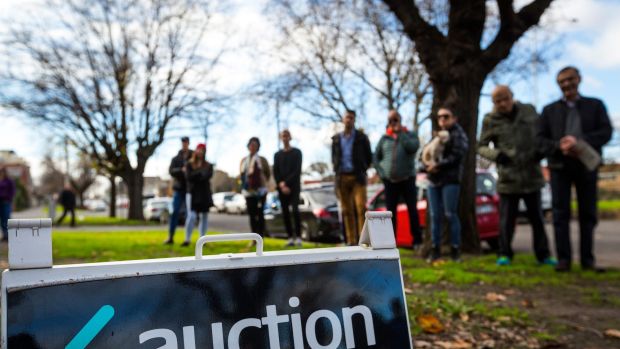Home prices will rise, don’t expect a crash: economist
Australian property prices are likely to keep rise this year before slowly losing momentum and going backwards.
That’s the consensus view of the 27 leading economists, academics, consultants and money managers polled for the BusinessDay Scope economic survey.
Another consensus view is that the slowdown in price growth doesn’t equate to a housing crash or “property bubble” bust. All except for one, that is.
Economist Steve Keen, now based in Kingston University London, says “they will burst.”
What drives house price growth is mortgage credit growth, Professor Keen says.
“Mortgage debt in Australia has gone from 80 per cent of GDP at the time of the GFC to 95 per cent today – one of the 3 highest levels in the OECD.”
“This gambit failed in every other country that has tried it,” he said.
No trigger
The panel’s average forecasts are for an increase in Sydney prices of 4.9 per cent (after 15.5 per cent in 2016) and an increase in Melbourne prices of 4.3 per cent (after 13.7 per cent).
Saul Eslake says in the absence of any obvious “trigger” like unexpected rate increases or an exodus of foreign investment there will be further “very small” city-wide gains in both cities.
Interest rates will stay low for long enough to support demand.
“We are expecting further growth in house prices this year .. but at a modest pace,” Bank of Melbourne’s Besa Deda says.
Population growth, particularly in Victoria, will continue to underpin the housing market, RBC Capital Markets’ Su-Lin Ong says.
“Slightly tighter and targeted lending coupled with increasing supply will, however, temper price gains in 2017,” Ms Ong said.
Values rise
Those views are underscored by the latest housing market data.
Dwelling values rose in seven out of eight Australian capital cities in January, CoreLogic figures show.
“The annual growth rate across the combined capital cities was 10.7 per cent over the twelve months ending January 2017, compared with 10.8 per cent over the previous rolling twelve month period,” CoreLogic’s Tim Lawless said.
The most recent quarterly capital gain across Hobart was the highest of any capital city at 5.8 per cent, taking the annual capital gain to 7.8 per cent, Mr Lawless said.
Capital Economics’ Paul Dale says that growth rate won’t be sustained.
“Both housing markets will experience a gradual slowdown in house price inflation generated by the combination of tightening lending standards and rising mortgage rates,” he said.
House prices won’t fall sharply this year as mortgage rates will stay low by historical standards and the unemployment rate is unlikely to rise, he said.
It’s a view shared by National Australia Bank’s Riki Polygenis.
“We expect there to be a slow deflation in these property markets this year, rather than a sharp correction in prices,” she says.
“Pent‐up demand remains especially large in Sydney, and while there are concerns about an oversupply of apartments in Melbourne, weakness is likely to be confined to certain segments in the market.”
“We expect Sydney and Melbourne housing prices to continue to rise in 2017, albeit at a slower rate than in 2016. We see single digit housing price growth in both markets,” says HSBC’s Paul Bloxham.
If that’s the case it will be good news for buyers struggling to get into a foot through the door of Australia’s notoriously pricey homes.
Trackback from your site.































